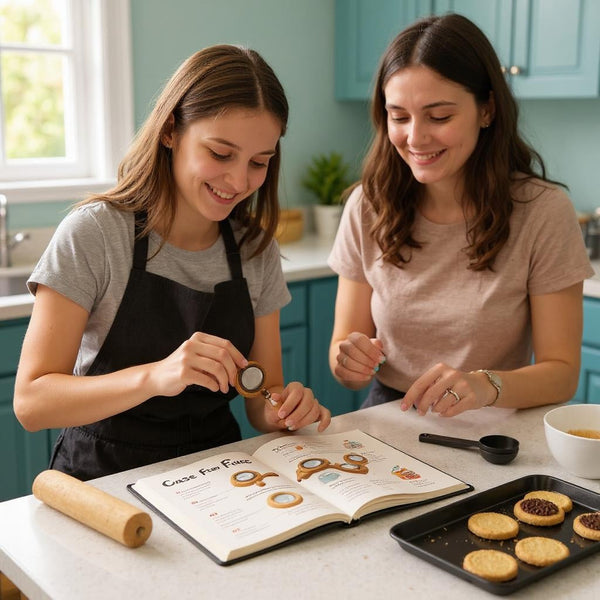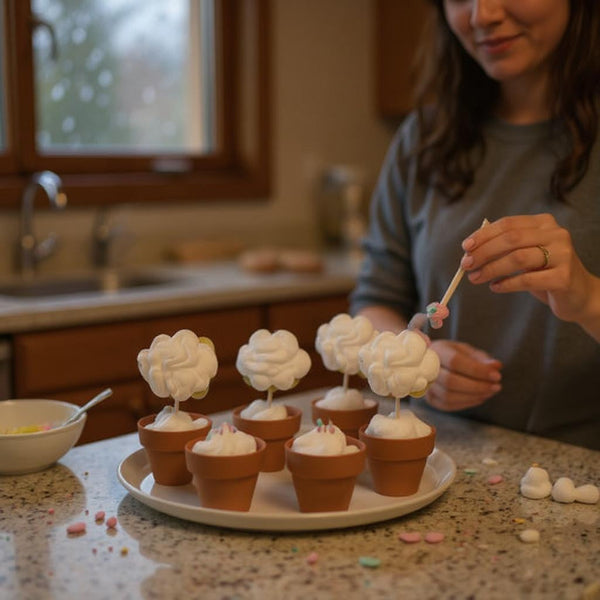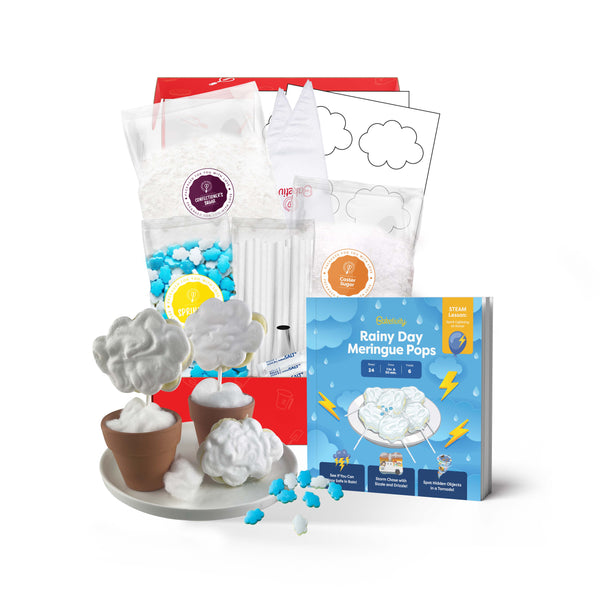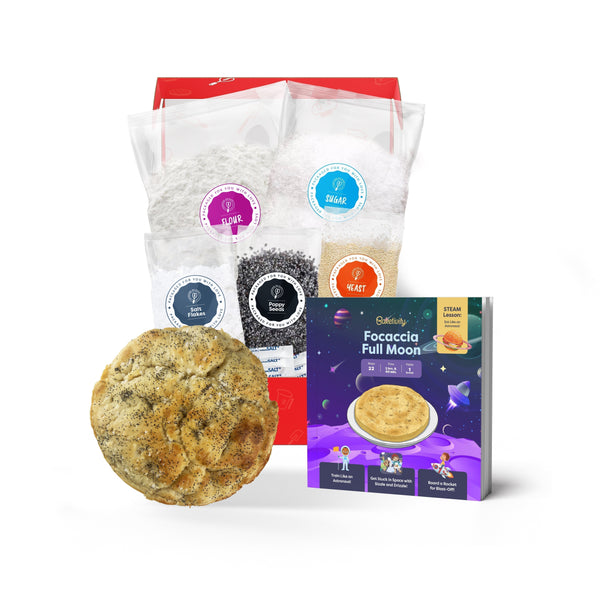Have you ever considered incorporating baking into your homeschooling curriculum? Not only is it a fun and delicious activity, but it can also provide a wealth of educational opportunities. In this ultimate guide, we will explore the basics of baking, how to integrate it into your homeschooling curriculum, and even dive into advanced baking techniques. So grab your aprons and let's get started on this exciting homeschool baking exploration!
Understanding the Basics of Baking
Before we dive into the world of homeschool baking, it's important to understand the fundamentals. Baking is a beautiful science that involves a careful balance of ingredients and techniques. By learning these basics, you'll be able to create scrumptious treats that will impress your family and friends.
To start, let's uncover the science behind baking. Understanding the role of ingredients like flour, sugar, and eggs will give you a solid foundation. You'll learn about the chemical reactions that occur during the baking process, resulting in fluffy cakes, flaky pastries, and perfectly risen bread.
Additionally, knowing which tools and ingredients are essential for baking is crucial. From measuring cups and spoons to mixing bowls and baking pans, having the right equipment will make your baking journey much smoother. It's also important to stock your pantry with staple ingredients like flour, sugar, baking powder, and vanilla extract.
Delving deeper into the world of baking, it's fascinating to explore the different types of flour and how they impact your baked goods. Whether you're using all-purpose flour for a versatile option or diving into the nuances of bread flour for a chewier texture, each type plays a crucial role in the final outcome of your creations.
Furthermore, understanding the art of flavor pairing in baking can take your treats to the next level. From classic combinations like chocolate and mint to more adventurous pairings like lavender and lemon, experimenting with flavors can lead to unique and delicious results that will delight your taste buds.
Lastly, we can't forget about safety measures in baking. From handling hot ovens to using sharp knives, taking precautions will ensure a safe and enjoyable baking experience for everyone involved.
Incorporating Baking into Homeschool Curriculum
Now that you have a solid understanding of the basics, let's explore how to incorporate baking into your homeschooling curriculum. The benefits of baking for child development are vast. Not only does it foster creativity and develop fine motor skills, but it also teaches valuable lessons in math, science, and even history.
One way to integrate baking is by connecting it to academic subjects. For example, you can explore the history of certain recipes and the cultures they originated from. By delving into the historical context of recipes, children can gain a deeper appreciation for different cultures and traditions. Understanding the origins of dishes like the French croissant or the Italian tiramisu can provide a rich tapestry of knowledge beyond just the culinary realm.
You can also incorporate math by involving your child in measuring and converting ingredients or calculating baking times. Understanding the science behind baking can be a fascinating journey for homeschoolers. From learning about the chemical reactions that occur when ingredients are mixed to exploring the role of temperature in the baking process, there are endless opportunities to turn the kitchen into a science lab.
Creating a baking schedule is also essential for a smooth homeschool baking experience. This schedule can include dedicated baking days or even specific themes for each week. By incorporating baking into your regular routine, you'll be able to consistently explore new recipes and techniques. Additionally, setting aside time for reflection after each baking session can help children develop critical thinking skills. Encouraging them to analyze what worked well in their baking endeavors and what they could improve on fosters a growth mindset and a sense of accomplishment.
Hands-On Baking Lessons
Now comes the fun part - the hands-on baking lessons! Let's start with the basics: baking bread. Bread baking is not only rewarding but also a great way to understand the role of yeast and fermentation in baking. You'll learn how to knead dough, shape loaves, and achieve that perfect crust and airy texture.
When it comes to bread baking, the magic truly happens during the fermentation process. As the yeast consumes sugars in the dough, it releases carbon dioxide gas, causing the dough to rise. This process not only leavens the bread but also develops complex flavors. Understanding the science behind fermentation will elevate your bread baking skills to a whole new level.
Next up, let's dive into the art of pastry making. From flaky pie crusts to buttery croissants, the world of pastries is full of endless possibilities. You'll discover the importance of precise measurements and techniques like lamination for achieving that irresistible flakiness.
When it comes to laminated pastries like croissants, the key lies in creating thin layers of butter within the dough through a process called folding and rolling. This technique results in the signature flaky layers that make croissants so delectable. Mastering the art of lamination requires patience and precision, but the end result is always worth the effort.
Lastly, let's master cookies and cakes. These classic treats are staples in many households, and by learning various techniques like creaming butter and sugar or whipping egg whites, you'll be able to create mouthwatering desserts that will impress even the toughest critics.
When it comes to cake baking, proper mixing techniques can make all the difference in the final texture of your cake. Creaming butter and sugar together incorporates air into the mixture, creating a light and fluffy cake. On the other hand, whipping egg whites to stiff peaks before folding them into the batter adds a delicate and airy quality to your cakes. Understanding these fundamental techniques will set you on the path to baking show-stopping cakes for any occasion.
Advanced Baking Techniques
Ready to take your homeschool baking to the next level? Get ready to explore advanced baking techniques that will elevate your skills to new heights.
Understanding yeast and fermentation is a crucial skill to master. By learning about different types of yeast and how they interact with other ingredients, you'll be able to create bread with complex flavors and textures.
No cake or cupcake is complete without the perfect icing and decoration. Discover different types of icing, from buttercream to fondant, and learn various decorating techniques like piping and intricate designs. Get ready to wow your family and friends with stunning creations!
Delving deeper into the world of icing, you can also experiment with royal icing, a versatile and traditional icing made from powdered sugar, egg whites, and flavorings. Royal icing is perfect for creating intricate designs, delicate lacework, and even edible decorations that can be used to adorn cakes, cookies, and gingerbread houses.
Furthermore, mastering the art of chocolate tempering can open up a whole new realm of possibilities in your baking endeavors. By properly tempering chocolate, you can achieve a glossy finish, a satisfying snap, and stable crystalline structure, ideal for creating chocolate decorations, enrobing truffles, or crafting elegant chocolate sculptures.
Lastly, consider experimenting with alternative ingredients in your baking. Whether you're baking for dietary restrictions or simply seeking new flavors, using ingredients like gluten-free flour, dairy-free milk alternatives, or natural sweeteners will broaden your culinary horizons.
Now that you have the ultimate guide to homeschool baking exploration, it's time to put on your apron and start your delicious journey. Enjoy the process, savor the results, and watch as your homeschooling experience becomes even more engaging and enjoyable!




